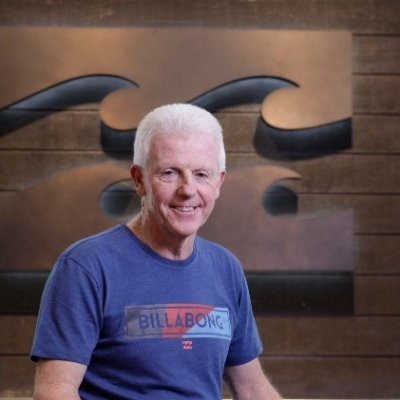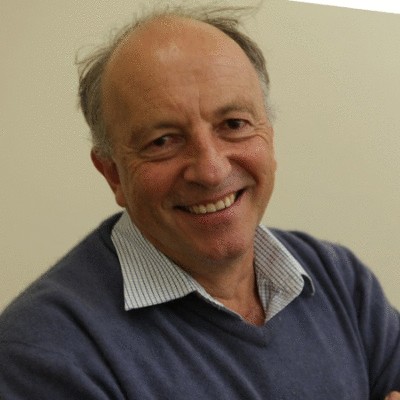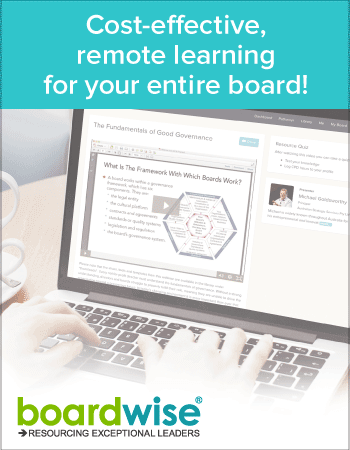leadership
Rethinking Leadership
Published: August 10, 2015
Read Time: 5 minutes

Growing Capacity in the face of continuous and complex change
There is so much talk about the need for “leadership”. Whenever things get difficult, up goes the call – “someone please help us get out of this mess” (at no cost to ourselves)!
In an ever faster, more complex world, organisations face difficult change and uncertainty. Even new possibilities present complexity. Corporates have to navigate shifting markets and global competition: yesterday’s leading companies may be tomorrow’s basket cases. Not-for-profits face changing needs, changing thinking about effective interventions, changing government policies and competition for grants or donations. Navigating this “_permanent white wate_r” is not a one off – it is the norm. We approach rapids moving quickly, needing to make significant decisions as we travel, avoiding obstacles and danger. Then there is what is around the corner. The stakes are high, as is our anxiety.
If change were easy it would happen automatically. We are working towards an uncertain future that can generate resistance. Fear, grief, scapegoating, withdrawal or controlling behaviour may be a danger for us all. So much happens at once in a complex intertwining mess. If only we could deal with one element at a time! But nothing is that simple, nobody has that kind of control.
The superhero solution
In Hollywood challenging problems are solved by fly-in-fly-out superheroes. Often leadership thinking is the same. People in positions of responsibility (chief executive officers (CEOs) and boards) have to be like Batman riding in to save Gotham City: create a big profile, make big decisions, execute chessboard-like solutions, then move on. So we throw ourselves into leading like this, running ever faster, trying to be who we are not. Yet our wheels start spinning, for all our effort we gain little traction. Finally we collapse, feel a failure, while those around us feel let down.
There is something deeply wrong with this picture. This type of leadership will generate only limited commitment in others and reduce their belief in their own capacities. Further, healthy organisations need many different kinds of leadership contributions: networkers, ideas people, systems people, strategists. Each of these is most naturally contributed by people with particular personalities. We are all genetically different and bring different capacities; no one is likely to bring them all. For this reason alone heroic leadership is destined to fail, damaging both would-be heroic leaders and those choosing or dragged into following them.
While serious thinking about leadership has moved on, in daily life such thinking continues undiminished. Though potentially dangerous, notions of heroic command and control leadership are deeply entrenched in our collective psyches, touching every board, CEO or person with positional responsibility. It is vital we rethink our understanding of change and leadership from the ground up.
A better way: Spread and nurture leadership widely
Leadership is fundamental to dealing with change, to developing new directions. How can we create or contribute “good” leadership that can make a positive difference?
Unlike more technical problems, complex adaptive challenges hardly ever have clear answers. These require us to look ever deeper at our purposes, experimenting to see what works, learning from what doesn’t, discovering constructive ways forward that leave us well placed for the next round!
Organisations need to empower a wide range of people to contribute a wide range of leadership strengths. The primary role of those in positions of responsibility is not to demonstrate their own capacities but to build collaborative leadership, seeing leadership as a contribution not a title, cultivating and harnessing leadership capacities as widely as possible, building teams bringing together the range of leadership contributions needed.
Taking this forward
Here are some key ingredients to consider:
-
Get on the balcony: Step out of busyness and take a look more deeply at key challenges and core purposes. Encourage others to do likewise. Facing complexity, our natural inclination is to run faster. Resist this: the more complex a situation the more perspective is critical.
-
Invest in relationships: There is massive capital in your team or organisation: experience, ideas, and life capital. Invest in it! Leave conversations with possible openings for further conversation.
-
Listen widely and openly to people across your organisation, to those you seek to serve and to dissident voices. They all bring important perspectives. Little is lost in listening, but there is real opportunity loss in not doing so.
-
Move beyond silos: Organisations are often highly fragmented, with teams in silos delivering their own piece without a clear view of the whole, making new ways forward harder to find.
-
Give oxygen to the hard questions: Encourage people to engage the real issues, and maybe contribute ways forward.
-
Encourage ownership of directions through involving people in direction setting. People will be more committed and engaged if they see their own aspirations in what is developed.
-
Encourage innovation and curiosity, prizing and nurturing it in daily life, meetings and conversations. Model that we all need to be lifelong learners. Leadership is about issues, but also opportunities.
-
Create a margin for experimentation: Encourage people to experiment (safely) with possibilities, allowing them time and space for it. Often, fear of failure limits innovation. Yet serial innovation is critical with returns either way: what works is forward progress, what doesn’t is valuable learning.
-
Generate learning cultures: Innovators aren’t always natural managers, so safe well-managed innovation will also be about surrounding innovation with good systems and communication via the involvement of others offering different leadership strengths.
-
Pace change carefully to balance risk and safety. Given change generates anxiety, too much risk will paralyse; too little will generate complacency.
Growing capacity
Growing capacity, listening, engagement, experimentation and learning can be pathways to deep change, positioning organisations well for a positive future. Often we see power as something we need to keep: if I give you power I lose something. Do we need to control in order to maintain power? The concept here is different: empowering others will grow an organisation’s overall capacity. Power can be multiplied to make a positive difference, generate potency and possibility for all. Sometimes we can even surprise ourselves with how significant that difference can be.
This article was originally published in the Better Boards Conference Magazine
Share this Article
Recommended Reading
Recommended Viewing
Author
-
Director
Mitlon Corporation
- About
-
Ian Pollard is a businessman, coach of senior executives and a writer and speaker on personal development. Ian has been Chairman, a director or CEO of around 30 companies. He has been coaching senior executives for more than a decade. Ian’s keenest interest, both academic and practical, is in the growth of individuals and of teams. Nothing gives him greater pleasure than seeing people jumping hurdles, growing through the experience and realising that they have further untapped potential. Ian is on the Executive Board of New River Leadership — a learning organisation committed to building the leadership capacity of individuals and groups in the face of continuous and complex change. Ian is a Rhodes Scholar and an actuary. He is also a keen sportsman and represented Australia in tennis in his youth.
-
Director
New River Leadership
- About
-
A partnership builder, innovator, and experience-based educator, Peter Kaldor has worked in research, community development and training roles with a wide range of non-profit and social care organisations and provided leadership development and consultancy support for others. Peter has spent a lifetime bringing together learning from different disciplines and ways of learning and is adjunct faculty at both Edith Cowan and Charles Sturt Universities. Through 25 years of researching leadership, well being, social policy and church life, Peter has published numerous books, articles and papers. Peter is also a director of the Uniting Church in Australia’s (UCA) Leadership Institute.
Found this article useful or informative?
Join 5,000+ not-for-profit & for-purpose directors receiving the latest insights on governance and leadership.
Receive a free e-book on improving your board decisions when you subscribe.
Unsubscribe anytime. We care about your privacy - read our Privacy Policy .








